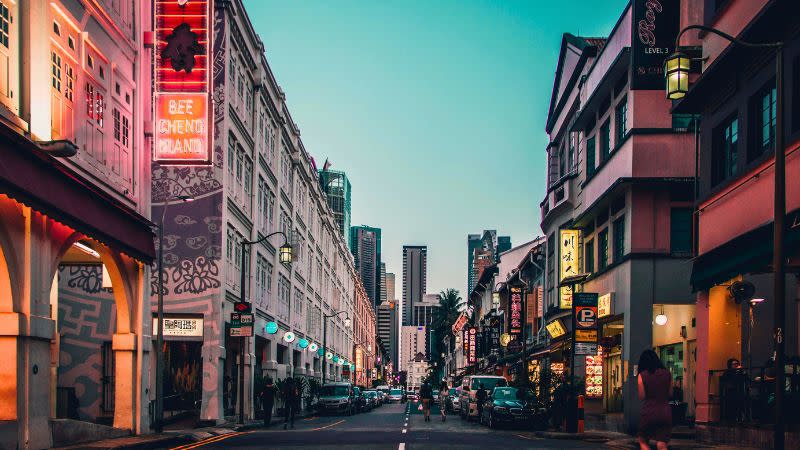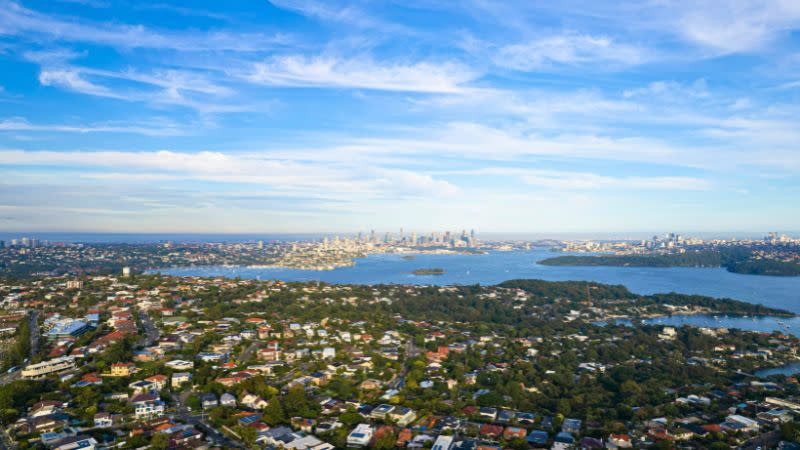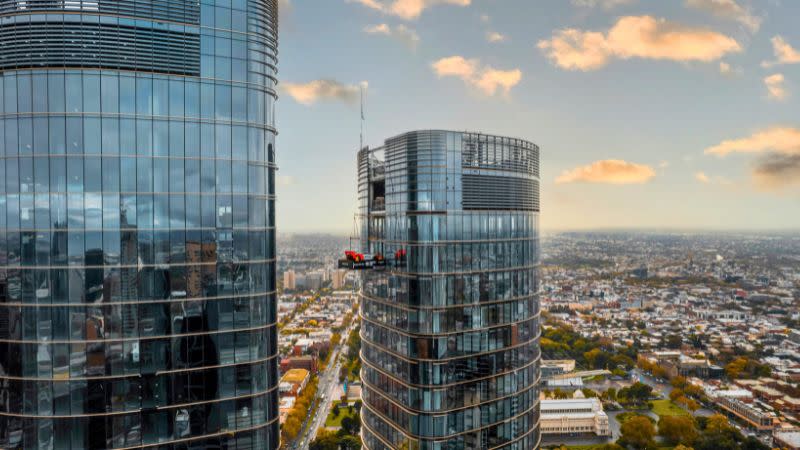Resources
Newsletter
Stay up to date and with the latest news, projects, deals and features.
Subscribe
Did you hear that?
That was the very subtle political creak of Australia’s backdoor slowly being shut on the world’s super-rich.
The closure of which is expected to impact the nation’s luxury residential property market, particularly high-end hotspots such as Sydney and the Gold Coast.
Not only that, its knock-on effect could also exacerbate the country’s already critical housing supply woes.
But the multibillion-dollar question is—to what degree?
Around the globe, the Great Millionaire Migration as it has been dubbed is still in full swing.
From 2013 to 2019, millionaire migration rose by almost 116 per cent and last year it was on track to surpass pre-pandemic levels with a record 125,000 millionaires upping stumps to new destinations.
And, according to Knight Frank’s most recent annual wealth report, even with an increasing number of countries tightening foreign investment rules and scrapping residency-by-investment “golden visa” schemes, 13 per cent of the world’s ultra-high-net-worth individuals—that is, those with net worth of at least $US30 million—are still planning to apply for a second passport or new citizenship.
Of the ranks of uber rich looking for a new country to call home, 16 per cent are from Asia, 15 per cent from the Americas and 12 per cent from the Middle East.
The demise of Australia’s golden visa—officially known as the Special Investor Visa [SIV]—comes as global mobility has become a must-have among the ultra wealthy in the wake of the pandemic and rise in geopolitical unrest.
Its axing, as we know it, was quietly announced in December in a federal government policy document outlining an overhaul of the nation’s migration strategy.
Applications have been closed pending what Home Affairs Minister Clare O’Neil has called “a radical restructure”.
“I think most Australians would be pretty offended by the idea that we have a visa category here where effectively you can buy your way into the country,” O’Neil has previously stated.
In January, she said in a statement: “It has been obvious for years that this visa is not delivering what our country and economy needs from a migration system.
“The investor visa is one of many aspects of the system which we are reforming to create a system which delivers for our country.”
Under the reforms, it is understood, elements of the SIV program will be wrapped into a new visa more focused on helping Australia make up ground in the highly competitive global race for talent.
It will be targeted at attracting innovative entrepreneurs, investors, highly skilled professionals as well as world-leading researchers.

Meanwhile, Knight Frank’s wealth report notes: “Competition to attract footloose wealth is hotting up. Alternatives to Western investor visa schemes are growing, with surging applications in Turkey, as well as more flexible offerings in Dubai, Singapore and Hong Kong”.
Under the SIV program, eligible mega-wealthy overseas investors seeking to live in Australia were required to tip $5 million into complying investments to be eligible for a four-year provisional visa.
It was introduced in 2012 as a stream within the federal government’s business innovation and investment visa scheme. Since then, about 3000 SIV visas have been granted—85 per cent to wealthy migrants from China—bringing in an estimated $15 billion of overseas capital to the country.
But beyond meeting their investment obligations under the SIV program, many of the successful applicants also have invested in residential and commercial property.
A study by Credit Suisse Australia indicated the average SIV investor contributed an additional $5 in flow-on GDP activities in Australia for every dollar of SIV capital invested.
By its calculations, this equated to $75 billion of further indirect GDP contributions or $90 billion in total GDP contributions in just over 10 years.
University of Adelaide property academic and Property Investment Professionals of Australia (PIPA) board member Peter Koulizos says there is no question the peeling back of the SIV will have consequences across Australia’s property sector.
“It will have an impact,” he says. “It won’t be disastrous, there are greater impacts in the property market such as recent increases in interest rates and talk about negative gearing … but it will have an impact on the supply of property, in particular higher-priced property.
“And at the moment, we really need more housing, we need to increase the supply of housing—any housing.”
Nevertheless, Koulizos says the cessation of the golden visa is a double-edged sword.
“On the one hand, it’s going to constrain the supply of housing because there won’t be those overseas investors pouring money into off-the-plan apartments and townhouses.
“But on the other hand, it’ll help because it won’t be forcing up prices as much… so we may not see the same explosion in prices we’ve seen of late.
“At the end of the day, many of these overseas investors don’t really care what the price of the product is that they need … if the property costs an extra 5 or 10 or 20 per cent more, it’s not a huge deal to them. The most important thing for them is to get that visa.”
Colliers Gold Coast Residential director David Higgins recalls when the SIV was implemented almost 12 years ago.

“There were a lot of people who were very excited about being able to transition and become residents in Australia, for sure. They had to jump through a few hoops but it was very popular.
“They brought wealth into the country, serious wealth. They bought homes, they sent their kids to schools, they bought cars, furniture, they spent a lot of money in the economy.”
But Higgins says it all came to an abrupt end with the onset of Covid and the foreign investors—mostly from China—still haven’t come back to south-east Queensland in any major capacity.
Nevertheless, he notes the Sydney luxury property market is continuing to lure a flurry of overseas investors with deep pockets, who are regularly snapping up multimillion-dollar trophy homes.
According to Koulizos, however, that may change as a result of the visa reforms.
“Migrants are attracted to Sydney because it is a truly global gateway city,” he says. “ So I think we'll see a big impact, especially from Asian investors ... and Sydney will be the hardest hit.”
Higgins agrees.
On top of Australia’s high taxing regime on foreign investors, the scrapping of the SIV won’t help things, he says.
“It’ll definitely curtail those super high-net-worth investors wanting to come over and get residency.
“They won’t be able to come in that back door. They’re going to have to come in the front door like everybody else, pay the tax and get in the queue.
“And, as a result, if we’re not competitive they’ll look around to other countries that have got their arms open … they’ll just go and take their money elsewhere.”

Real estate firm Juwai IQI co-founder Daniel Ho says it is “a relatively small and elite group”.
“This visa channels high-end buyers into Australia’s most exclusive property markets, where homes cost $5 million, $10 million or even $40 million.
“It doesn’t have much impact on the market overall, because these premium neighbourhoods are the enclaves of the rich and famous.
“These buyers seek out new luxury apartments and mansions in Toorak, Hawthorn, Vaucluse, Mosman, Bellevue Hill and the more expensive areas in Sydney’s North Shore.”
“And we don’t believe the scrapping of the [SIV] scheme will result in luxury buyers defecting to other countries because their primary motivation is to come to Australia, not to take advantage of the visa.
“If this door closes on them, they will seek another way to obtain Australian residency.”
Plus Agency general manager Peter Li’s clientele is mostly wealthy Chinese buyers.
Last year, the Sydney project marketing business transacted more than $300 million in sales, much of it luxury residential property in the city’s eastern suburbs and North Shore.
Li says with the halting of the SIV program he is expecting a degree of fallout as wealthy internationals reconsider their options, with Singapore and Japan alreading emerging as their preferred alternative destinations.
In terms of the impact on the local property market, he says, penthouse sales in new developments were likely to suffer the most.
“Those really oversized, nice penthouses developers are trying to get crazy money for, you know, that’s probably going to get stalled because a lot of these are bought by the people with the golden visas.”
But Li also points out that by now most of the ultra-high-net-worth individuals from China have “already got their visas sorted out”.
“They’re already done—wherever they want to choose to go, they already have it.
“So really I think it’s the middle range [of high-net-worth individuals] that is actually getting affected by this.
“Which is why, in terms of the property market, I’m thinking it’s going to be the $5 million to $10 million bracket that’s going to get the heavier hit.”
Meanwhile, the Sydney market is forecast to have the highest growth in luxury residential property prices of Australia's cities in 2024.
Knight Frank research indicates the New South Wales capital sits in fifth place out of 25 cities globally for predicted prime property price growth, with a 5 per cent growth forecast.
“The impact is not here now,” Li says of the ending of the golden visa program.
“But I think in a year or so we will see some effect coming through … the pool of money from these type of buyers will shrink because there will be no new people jumping into the pool.”
You are currently experiencing The Urban Developer Plus (TUD+), our premium membership for property professionals. Click here to learn more.
